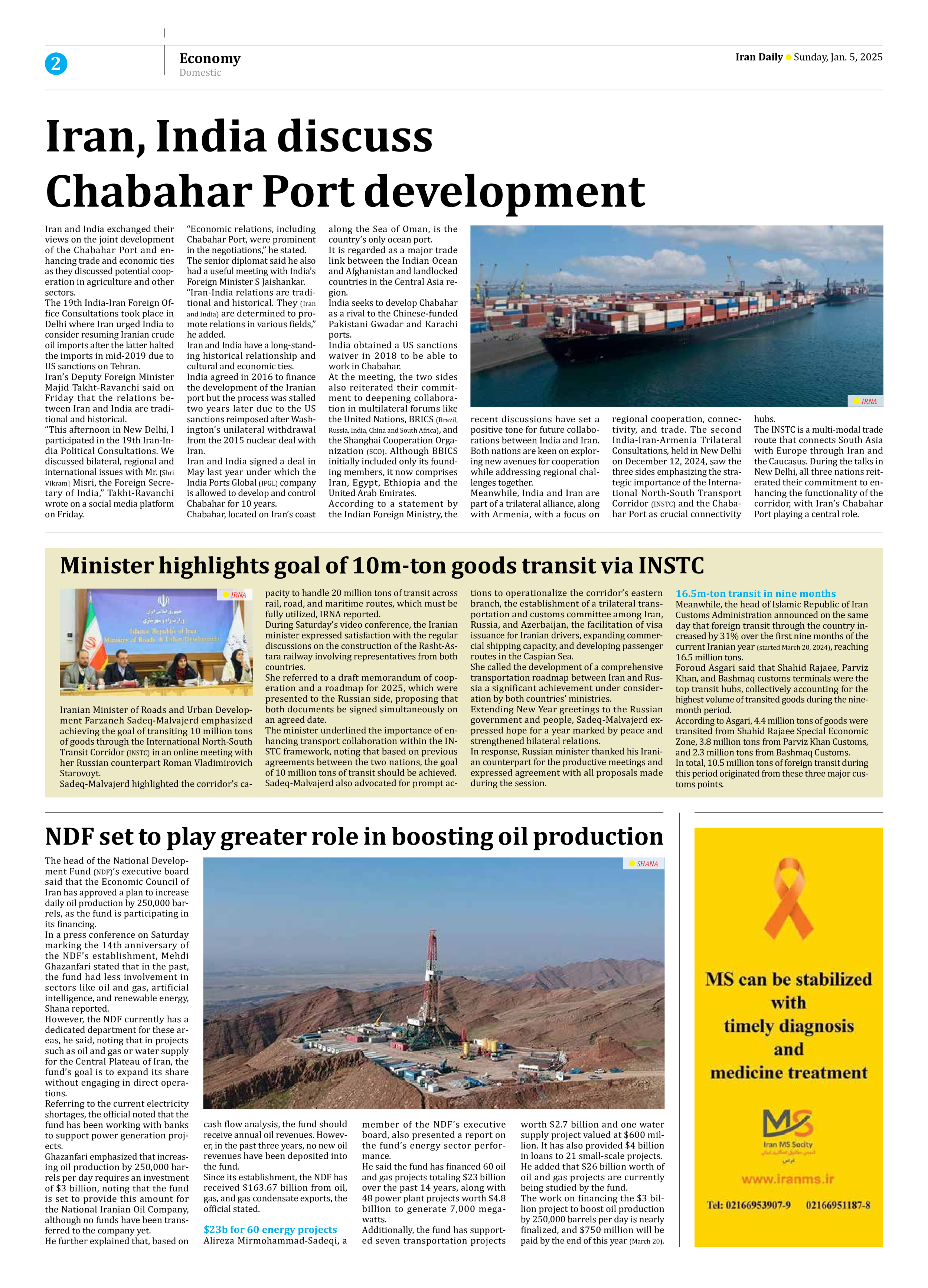
Copy in clipboard...
Iran, India discuss Chabahar Port development
The 19th India-Iran Foreign Office Consultations took place in Delhi where Iran urged India to consider resuming Iranian crude oil imports after the latter halted the imports in mid-2019 due to US sanctions on Tehran.
Iran’s Deputy Foreign Minister Majid Takht-Ravanchi said on Friday that the relations between Iran and India are traditional and historical.
“This afternoon in New Delhi, I participated in the 19th Iran-India Political Consultations. We discussed bilateral, regional and international issues with Mr. [Shri Vikram] Misri, the Foreign Secretary of India,” Takht-Ravanchi wrote on a social media platform on Friday.
“Economic relations, including Chabahar Port, were prominent in the negotiations,” he stated.
The senior diplomat said he also had a useful meeting with India’s Foreign Minister S Jaishankar.
“Iran-India relations are traditional and historical. They (Iran and India) are determined to promote relations in various fields,” he added.
Iran and India have a long-standing historical relationship and cultural and economic ties.
India agreed in 2016 to finance the development of the Iranian port but the process was stalled two years later due to the US sanctions reimposed after Washington’s unilateral withdrawal from the 2015 nuclear deal with Iran.
Iran and India signed a deal in May last year under which the India Ports Global (IPGL) company is allowed to develop and control Chabahar for 10 years.
Chabahar, located on Iran’s coast along the Sea of Oman, is the country’s only ocean port.
It is regarded as a major trade link between the Indian Ocean and Afghanistan and landlocked countries in the Central Asia region.
India seeks to develop Chabahar as a rival to the Chinese-funded Pakistani Gwadar and Karachi ports.
India obtained a US sanctions waiver in 2018 to be able to work in Chabahar.
At the meeting, the two sides also reiterated their commitment to deepening collaboration in multilateral forums like the United Nations, BRICS (Brazil, Russia, India, China and South Africa), and the Shanghai Cooperation Organization (SCO). Although BBICS initially included only its founding members, it now comprises Iran, Egypt, Ethiopia and the United Arab Emirates.
According to a statement by the Indian Foreign Ministry, the recent discussions have set a positive tone for future collaborations between India and Iran. Both nations are keen on exploring new avenues for cooperation while addressing regional challenges together.
Meanwhile, India and Iran are part of a trilateral alliance, along with Armenia, with a focus on regional cooperation, connectivity, and trade. The second India-Iran-Armenia Trilateral Consultations, held in New Delhi on December 12, 2024, saw the three sides emphasizing the strategic importance of the International North-South Transport Corridor (INSTC) and the Chabahar Port as crucial connectivity hubs.
The INSTC is a multi-modal trade route that connects South Asia with Europe through Iran and the Caucasus. During the talks in New Delhi, all three nations reiterated their commitment to enhancing the functionality of the corridor, with Iran’s Chabahar Port playing a central role.







